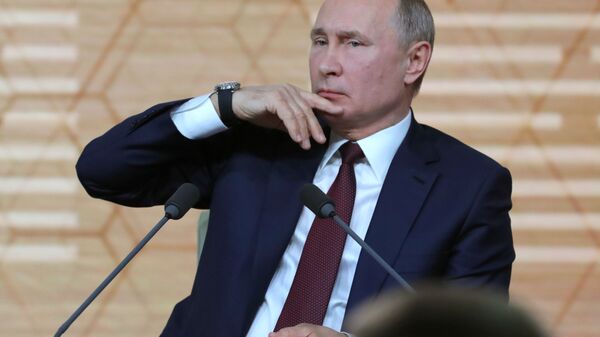President Vladimir Putin on Wednesday gave his annual address to Russia’s lawmakers, ministers and other high-ranking officials.
The spotlight this year was on domestic matters such as economy and social policy.
Here are some of the key takeaways from the 72-minute speech:
On foreign policy
- The president devoted just several phrases to foreign affairs, saying the five permanent members of the UN Security Council should work to ensure global order. The President also praised Russia’s advanced defence capabilities.
- He said: “[Russia] took steps to strengthen national security in a timely manner. For the first time in the history of nuclear weapons, we are not chasing anyone. On the contrary, other countries have yet to create weapons that Russia possesses. The country's defence capabilities are ensured for years to come.”
On governance overhaul
Arguably the most significant part of the address, which will take some time for both officials and the public to process, is the proposed changes to the Constitution.
- Vladimir Putin believes there’s no need for a new Constitution, but some crucial amendments should be made regarding public service.
- He said that international laws should be applied in Russia only in those cases where they don’t contradict the Constitution as the basic law of the country.
- President Putin called for tougher requirements for those running for president: a candidate for the office must have permanently resided in Russia for at least 25 years (currently 10) and must have had no dual citizenship (the Constitution in its current form doesn’t prohibit this).
- Despite saying that Russia should remain a “strong presidential republic”, the President spoke in favour of giving more power to the Parliament. Specifically, lawmakers should be given the right to appoint the Prime Minister, his deputies and ministers (who are currently appointed by the President with the consent of the lower house).
- He also proposed minor extensions to the authority of the Constitutional Court and the upper house of Parliament.
- With his second consecutive (and fourth overall) term ending in 2024, many observers have expected Putin to say whether he would propose any constitutional amendments regarding the limits on presidential term. The Russian Constitution allows a president to serve no more than two consecutive terms and stipulates no limits on the total number of tenures. Putin said he agrees with the notion that the word “consecutive” should be dropped, but said he didn’t feel like it was a “principal” issue.
- Although the Parliament could adopt the proposed changes, Putin believes that a popular vote on them would be necessary.
On democraphics and health
- Vladimir Putin offered to overturn unsatisfying demographic trends, such as the moderate fertility rate, by providing monthly social allowances to low-income families with children and increasing the family capital.
- He also pledged to work to boost real wages and increase healthcare funding, saying that the GDP growth rate in 2021 should be above the global average.
- In a follow-up to the address, Russia’s Economy Ministry said Putin’s proposals will help reduce poverty by over 10 percent by the end of 2020 and add 0.3 percent to overall GDP growth.




